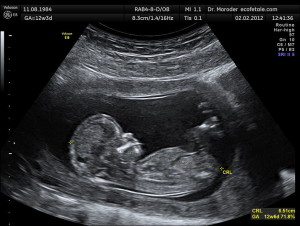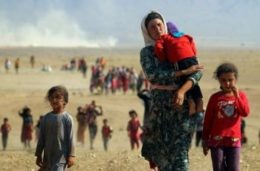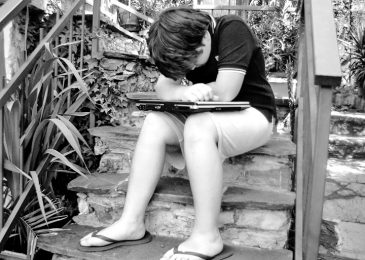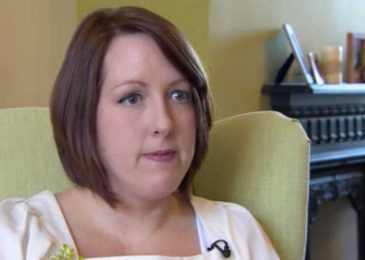 MONTGOMERY, Ala. — The Alabama Supreme Court has ruled that a woman’s wrongful death lawsuit against an OB/GYN accused of contributing to the death of her unborn child may proceed. It declared that unborn children are human beings whether or not at the point of viability and therefore are entitled to legal protection.
MONTGOMERY, Ala. — The Alabama Supreme Court has ruled that a woman’s wrongful death lawsuit against an OB/GYN accused of contributing to the death of her unborn child may proceed. It declared that unborn children are human beings whether or not at the point of viability and therefore are entitled to legal protection.
“In light of the legislative recognition that a ‘person’ includes an ‘unborn child in utero at any stage of development, regardless of viability,’ we do not believe that probable progression to viability is the appropriate relevant proximate-cause inquiry in this case,” it wrote. “Rather, we hold that, in order to establish proximate cause, Stinnett was required to show that Dr. Kennedy’s actions probably caused the death of the fetus, ‘regardless of viability.'”
The matter at issue involved Alabama resident Kimberly Stinnett, who experienced abdominal cramping and fever early in her pregnancy and was consequently instructed to go to the emergency room. As she had experienced an ectopic pregnancy in the past, the doctor who saw her, Karla Kennedy, was concerned that the situation might be recurring. Kennedy had been standing in for Stinnett’s regular physician that day.
“An ultrasound performed in the emergency room revealed intrauterine fluid in the endometrial cavity that could be a gestational sac, but there was no evident yolk sac, fetal pole, or cardiac activity,” Friday’s ruling noted.
Kennedy performed a dilation and curettage procedure to help determine whether the pregnancy was intrauterine or ectopic, and suspecting an ectopic situation, she administered methotrexate, which the court noted is “intended to cause the end of the pregnancy.”
However, when Stinnett’s regular physician, William Huggins, returned, he conducted an ultrasound, which “showed that what had previously been suspected to be an intrauterine gestational sac had, in fact, progressed to a ‘definite yolk sac.'” He concluded that she rather had an intrauterine pregnancy after all, which was now failing, possibly as the result of the methotrexate.
Weeks later, Stinnett miscarried and then sued Kennedy for wrongful death over the loss of her child. Kennedy asserted in court documents that the pregnancy was already failing and she was simply following protocol.
A trial court dismissed Stinnett’s claims, so she appealed to the state Supreme Court. The justices unanimously reversed the denial on Friday and remanded the matter back to the lower court.
“Based on our previous holdings …, we hold that the trial court erred in dismissing Stinnett’s claim alleging wrongful death based on the death of her pre-viable unborn child,” it concluded. “Nor do we find that Dr. Kennedy was due a summary judgment on the wrongful-death claim on lack-of-proof-of-causation grounds or that the judgment of the trial court is due to be affirmed on the basis of the doctrine of collateral estoppel.”
The court largely based its decision on an amendment in Alabama’s Homicide Act, which, as stated, “changed the definition of a ‘person’ who could be a victim of homicide to include ‘an unborn child in utero at any stage of development, regardless of viability.”
Judge Thomas Parker also wrote a concurring opinion, noting that the “viability” standard in Roe v. Wade is faulty.
“The use of the viability standard established in Roe is incoherent as it relates to wrongful-death law because, among other reasons, life begins at the moment of conception. The fact that life begins at conception is beyond refutation,” he declared.
Parker stated that judges have a duty to protect life, including that of the unborn.
“Unborn children, whether they have reached the ability to survive outside their mother’s womb or not, are human beings and thus persons entitled to the protections of the law—both civil and criminal,” he wrote. “It should be all the more intolerable in Alabama, where the express, emphatic public policy of our state is to uphold the value of unborn life.”
“Members of the judicial branch of Alabama should do all within their power to dutifully ensure that the laws of Alabama are applied equally to protect the most vulnerable members of our society, both born and unborn,” Parker said.
A special message from the publisher…
 Dear Reader, because of your generous support, we have received enough funds to send many audio Bibles to Iraqi and Syrian refugees displaced by ISIS in the Middle East. Many have been distributed and received with gladness. Now, as the cold winds of winter blow in, we are seeking to also meet the physical needs of the people by providing fuel-operated heaters for the refugees and their children to stay warm. Would you join us by making a donation today to this important work (James 2:16)? Please click here to send a heater to a refugee family >>
Dear Reader, because of your generous support, we have received enough funds to send many audio Bibles to Iraqi and Syrian refugees displaced by ISIS in the Middle East. Many have been distributed and received with gladness. Now, as the cold winds of winter blow in, we are seeking to also meet the physical needs of the people by providing fuel-operated heaters for the refugees and their children to stay warm. Would you join us by making a donation today to this important work (James 2:16)? Please click here to send a heater to a refugee family >>




